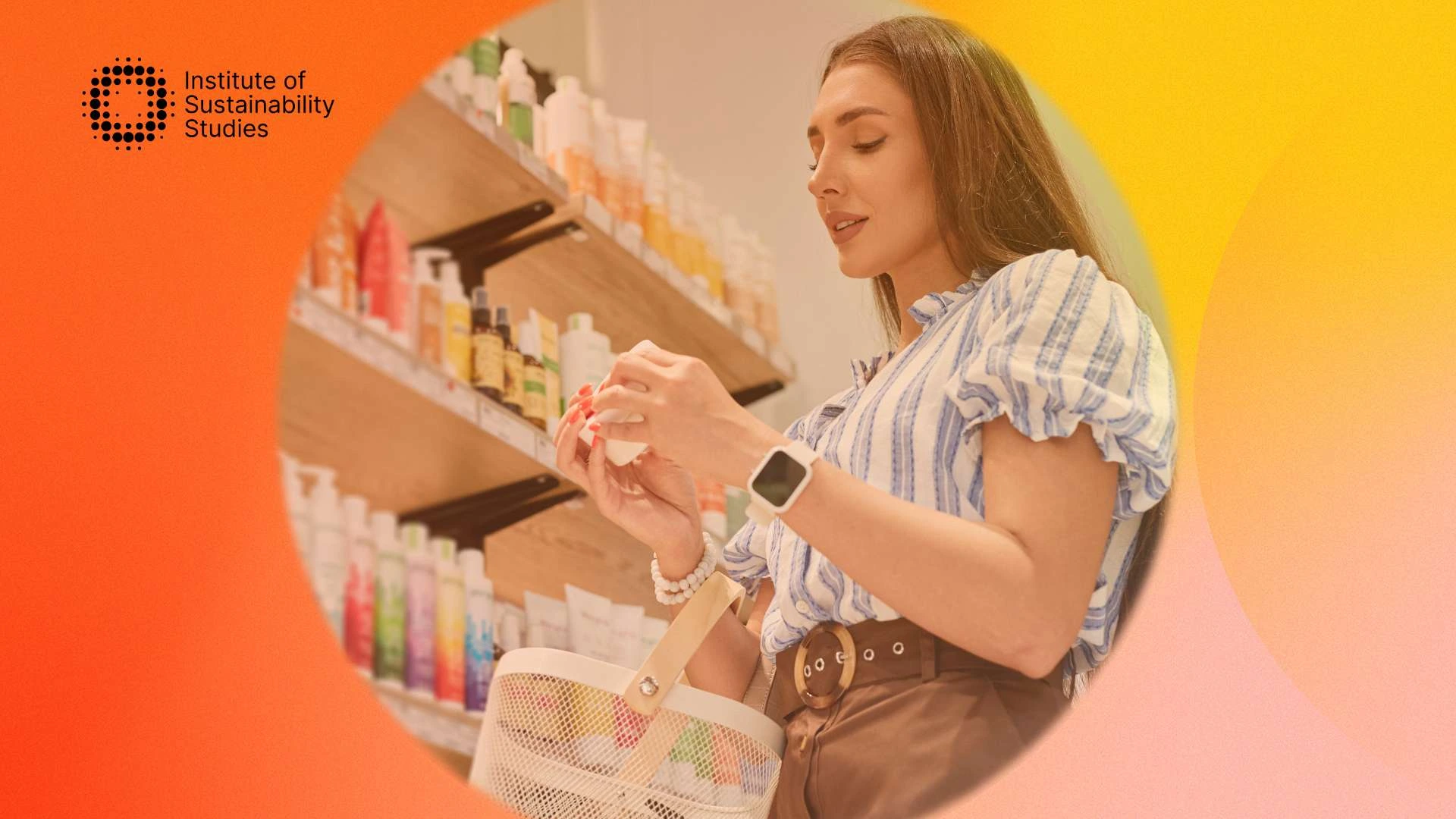Plastic may be a cheap material with a multitude of uses, but it is a huge problem for environmental sustainability. While plastic is designed to be disposable, it doesn’t go away but instead lingers, continuing to cause further harm. For the last number of years, plastic has been our favourite packaging material.
We see plastic just about everywhere- from our local grocery store, restaurants, and even more worrying, in our oceans. According to the UN, every minute, the equivalent of one bin truck full of rubbish is dumped into our oceans. Plastic pollution is by no means a local issue but a global problem.
This kind of pollution can alter natural processes and habitats, reducing ecosystems’ ability to adapt to the environmental crisis. This ultimately affects millions of people’s social well-being, livelihoods, and of course, food production capabilities. With this in mind and your ability to use your business for good, what can businesses do to help us move away from this plastic problem?
Why we need to act on our plastic problem
Recycling is not enough to help us get out of our plastic problem. It is an important step in addressing some areas, but it is not the answer here. For instance, food safety legislation requires food-grade, high-quality plastic. This standard means recycled plastic does not make the cut. Plastic is not even infinitely recyclable. This is because the material actually becomes toxic after the first few cycles.
The main material that does meet regulations in terms of food-grade recycled content is recycled PET. This is created from returnable bottles, usually through deposit return schemes (DRS). The reason this kind of plastic makes the cut is that DRS systems enable the plastic to be collected separately through a concentrated stream. They are then cleaned, crushed, and processed into brand-new, shiny, high-quality packaging ready to be reused.
Unfortunately, we are not in a position to make other kinds of plastic fully circular because the infrastructure required is not available in most parts of the world. The negative effects and risks associated with plastic are enough to justify the need to move away from this material. However, a holistic approach will be required to tackle this puzzle. In other words, there is no single, one-size-fits-all solution that will help us.
To minimise and reduce plastic packaging, numerous areas of expertise must work collaboratively and develop a plan and measurable goals at the company level. Knowledge of recycling systems and the plastic chain is very much needed. This also means producers and retailers will need to review their packaging case by case and justify their material decisions to their customers.
What we really need to focus on here is using less plastic packaging and recycled materials in those plastics that are necessary. The likelihood of us moving away from plastic totally is a bit unrealistic, unfortunately. In other words, this material will always be viewed as incredibly useful. However, we can be slightly optimistic as more and more businesses work to reduce their own plastic footprints, which makes a real difference.
Can businesses have a significant impact on curbing our use of plastic?
Companies and businesses have the biggest environmental impact, and with this, they bear the greatest responsibility. We are facing major plastic problems, and a lot of this comes down to a lack of recycling capabilities and poor waste management. Selective responsibility and market structures also come into play here.
People across the globe are rejecting single-use plastics and are committed to leading more sustainable lifestyles. Governments are also taking action. For instance, over 50 countries have committed to the UN Environment Clean Seas campaign. Businesses cannot afford to ignore the public’s wishes, and many industries are already coming up with strategies to move away from single-use plastics and use more recycled plastics.
The pressure is not only coming from everyday consumers, investors are also demanding that the companies they are investing in, take action. In 2018, Bloomberg reported that a group of 25 investors, of which were managing over $1 trillion in assets, were requesting that big brands like Procter & Gamble, Unilever, PepsiCo, and Nestlé minimise their use of plastic packaging.
Since the 1950s, humans have created roughly 8.3 billion tonnes of plastic, of which much has still not broken down. Plastic pollution is also not predicted to slow down; it is forecast to grow 40 percent in the next decade. This is because fossil fuel businesses are investing billions of dollars to build new-generation plastic-making factories in locations like the United States. With all this in mind, it is apparent that businesses using plastics have a vital role to play in changing this detrimental dynamic.
What can businesses do to act on the plastic problem?
You understand our plastic problem and why it is vital we act on it, and how acting on it is good for business. But how exactly do you take action on such a significant problem? Ultimately, what it comes down to is industries need to design or redesign their profits so that they fit the systems we operate in. Reducing and improving plastic packaging will require businesses to develop strategies with measurable goals at the company level.
They will have to review their packaging on a case-by-case basis and justify why they chose specific packaging options to health-and-safety regulators and their customers. Ultimately, though, there is no one solution to solve the plastic problem. Several interlinked actions are needed. Continue reading for our recommended actions businesses should take to tackle our plastic issue.
Utilise just recyclable materials
One big way your business can act on plastic is by using just recyclable materials in your packaging. Businesses should create their packaging in a way that supports the recycling conditions in their end-of-life markets. They should not just consider the theoretical ability to recycle the packaging.
Another thing businesses should do is swap from multi to recyclable and mono-material packaging. Unfortunately, when different plastics and materials are combined in one package, it is very challenging to sort them into homogenous streams. What this means is the packaging is likely to be brought to landfilled and incinerated or worse, dumped straight into the environment.
Minimise the volume of plastic packaging
This one may be a bit more obvious but another way you can act on plastic is by minimising the volume of plastic packaging you use. You can do this by rethinking your product delivery. For instance, ask yourself whether the product even needs packaging or if it could be delivered in a different way by removing the packaging entirely. Lush, for example, has a naked range which means customers can pick up their favourites without any packaging.
Along with rethinking your packaging, consider substituting plastic with other materials that are more environmentally friendly like compostable materials. Some great options include metal, glass, or paper. Overall, you must comprehend the environmental impact this switch will have and strike the perfect balance. Materials like paper, metal, and glass are more recyclable and cause less leakage. However, they tend to have higher CO2 emissions.
Move from single-use packaging to reusable
Another great step you can take is by moving to circular solutions. These solutions are reusable and are a great answer. Think about your business model and products and invest in reusable and refillable packaging where you can. Many brands across the globe have already started doing this. For instance, Original Source now allows customers to buy a refillable bag of shower gel to fill up their bottles at home.
Use maximum recycled content
Using maximum recycled content in your operations as well as in your packaging can also help. For instance, using as much recycled content as possible will increase market demand. This, as a result, drives the development of recycling infrastructure. With this, you minimise pressure on the planet. Contributing to the development of sustainable practices is also important.
For example, supporting policies like deposit return schemes in the markets you operate within. Using recycled plastic packaging is also a great choice as it decreases the overall CO2 balance of your product. It also decouples your costs from the ever-increasing prices of virgin plastic. These prices frequently fluctuate with oil prices. Therefore, this makes you much less dependent on primary plastic producers.
Consider biodegradable or bio-based plastics
Another thing that can help is using biodegradable or bio-based plastics. For instance, green chemistry facilitates the development of bio-based and biodegradable plastics. These innovations are very appealing, but in saying that, they can present new challenges regarding waste management. You will likely have to invest in the management of its waste after usage. Bio-based plastics are not made from fossil fuels. Rather, they are based on biomass from sugar and wood.
They sound environmentally friendly to the customer, however, they still do not solve the recycling problem. Some recyclers and customers are slightly confused about how to dispose of them correctly. The exact same can be said for biodegradable plastic. Unfortunately, the infrastructure to biodegrade or compost these innovative plastics is not widely available. In addition, there is a lot of greenwashing out there, so be sure to do your due diligence.
Summary
We are facing a significant plastic problem, and it is not going to disappear anytime soon. We have to do our best to act on it, and businesses can make a big difference. Implementing some of the above actions through a holistic approach is key. However, looking into other options like plastic credits, educating your customers, and building accountability are also vital.










